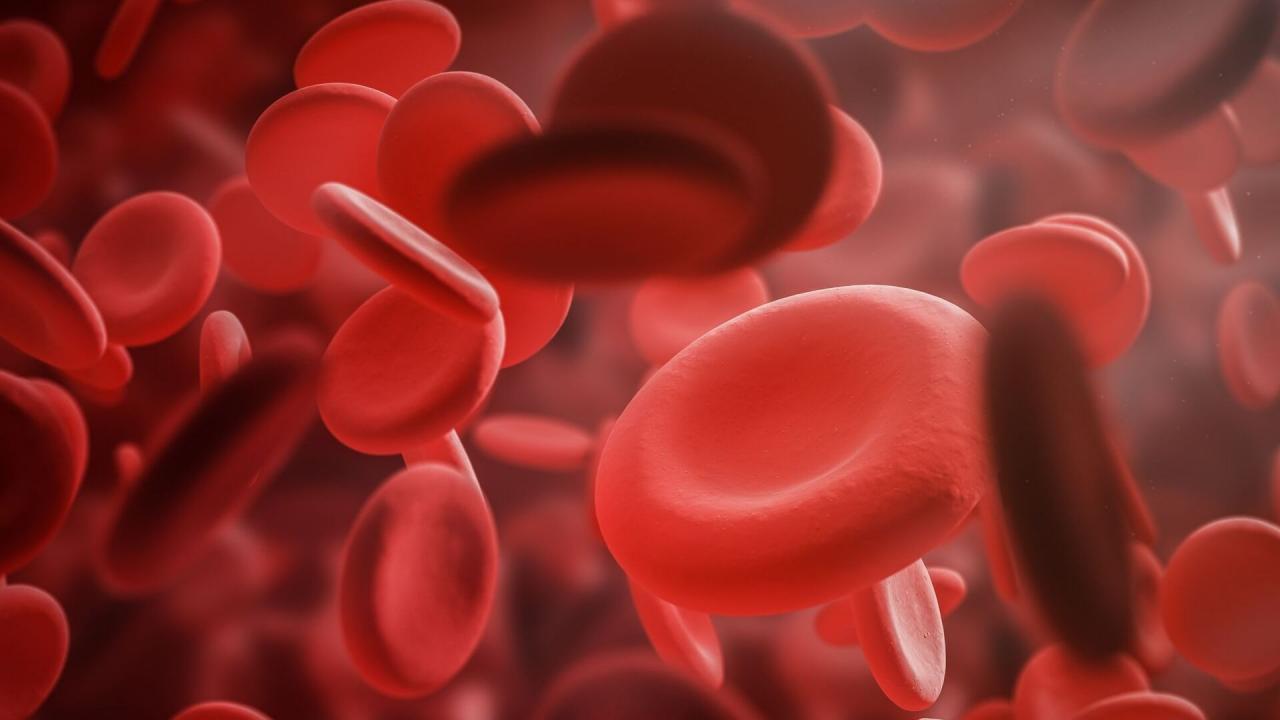 Photo: Getty Images
Photo: Getty Images
Have you been diagnosed as having low iron? The blood test is very simple and commonly includes a complete blood count, and ferritin if you’re looking to see your iron storage. Symptoms of low iron include fatigue, hair loss, heavy periods, breaking/splitting nails, pale skin, cold hands and feet, easy bruising, cravings to chew ice, shortness of breath, heart palpitations, lightheadedness and dizziness.
Many women discover they are low in iron (or ferritin) and are subsequently put on iron supplements. Unfortunately, many irons aren’t well absorbed and can cause constipation and GI upset so it’s important you determine the cause of your low levels.
The five most common reasons for developing anemia are:
1) Bleeding issues – iron is found in red blood cells and if you are bleeding for any reason, you lose your iron. For women, the most common cause is menstrual blood. Unfortunately, bleeding causes low iron but low iron causes heavy bleeding. Bleeding can also happen in the GI tract from the stomach (in the form of an ulcer) and from the colon in the form of hemorrhoids (most commonly). Make sure you get a thorough work-up.
2) Dietary – if you don’t eat foods that are rich in iron, how are you going to get it in? The most absorbable forms are heme-irons found in red meat, clams, oysters, and liver, however you can get iron from cooked beans and lentils, pumpkin seeds, canned beans, and enriched cereals.
3) Absorption issues – If you have problems digesting your foods or are prone to bowel problems then you probably don’t absorb your iron very well. Do you have celiac? Irritable bowel? Crohn’s? Leaky gut? Food intolerances? All of these can cause low iron levels.
4) Critters – the most common reason for iron deficiency worldwide is worms. I would suggest GI testing for worms, candida (yeast), bacteria, amoebas and other GI bugs that absorb iron before you can.
5) Other supplements – do you take your iron at the same time you sip your tea and eat your cereal with milk? Wrong! Iron does not play well with thyroid medication, tannins in tea and coffee, calcium, and soy. Plan carefully when you take your supplements. Make sure the iron is at least 4 hours away from those other things.
As you can see, your iron deficiency can have a number of causes and it is important you determine the problem. By addressing that and taking your supplement, you’ll feel much improved in no time!





Add a Comment2 Comments
I became severely anemic as a result of giving blood too often, generally every 8-10 weeks for a number of years, except the occasional times I was deferred because my hematocrit wasn't high enough to give. I passed out skiing with no warning (I didn't feel light headed or nauseous, although I had been losing hair without knowing why, but didn't experience any other signs of anemia), and suddenly dropped like a rag doll, hitting my head and sustaining a concussion (and, yes, thank goodness I was wearing a helmet). My doc said it was a perfect storm, so to speak - I had given blood the day before (which wasn't unusual for me - I had skied the day after giving blood many times), was skiing above tree line, had had a light breakfast and hadn't had a full night's sleep. Plus, I'm thin (I generally weigh around 113 lbs.) My blood work showed my Ferritin Serum/Plasma (iron) was only 5 ng/mL. Normal is between 20 and 288. I took iron pills and didn't give blood for a year and am fine again. Although I've resumed giving blood because I think it's a really good thing to do and a great way to help the community, I'm cutting back to 3 rather than 6 times per year and will keep an eye on my Ferritin level.
October 4, 2019 - 11:40pmThis Comment
Hello, Anon!
If a patient is a frequent blood donor (more than twice a year for women or more than 3 times a year for men), it's reasonable to watch for symptoms of iron deficiency and check hemoglobin and ferritin levels. Dietary iron supplementation after donation can also help as you mention. I'm glad you are feeling better and have found a balance that lets you continue to donate. It's something we should all do if we can.
October 5, 2019 - 6:26ambest,
Helena
This Comment